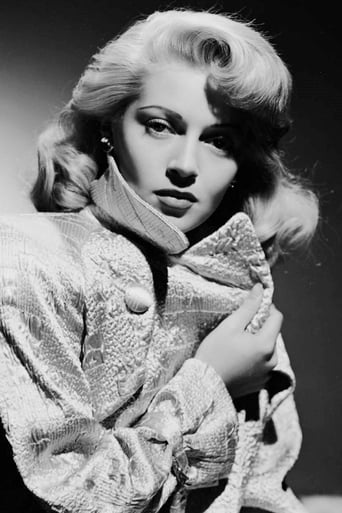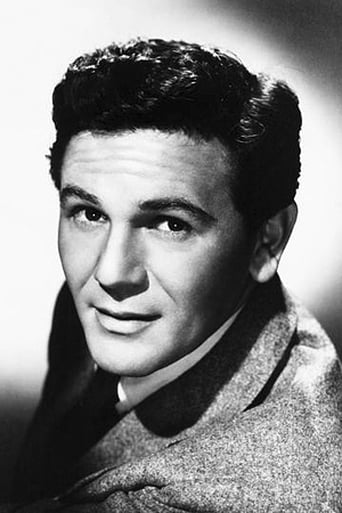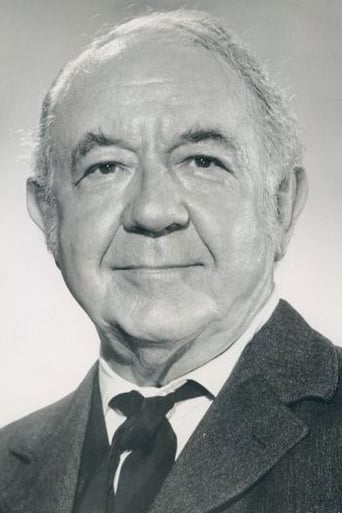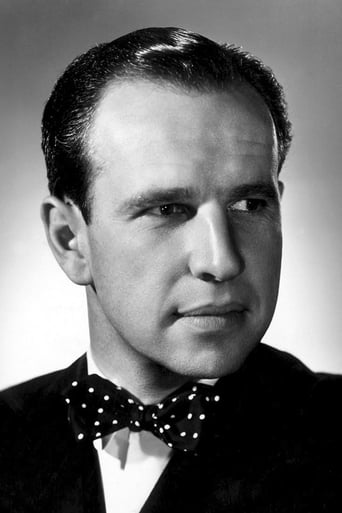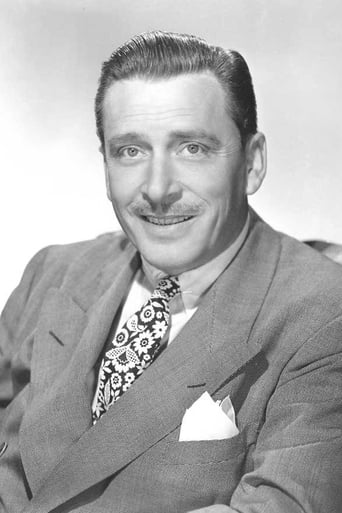NekoHomey
Purely Joyful Movie!
Hadrina
The movie's neither hopeful in contrived ways, nor hopeless in different contrived ways. Somehow it manages to be wonderful
Kimball
Exactly the movie you think it is, but not the movie you want it to be.
Staci Frederick
Blistering performances.
James Hitchcock
I was surprised to learn that this was the third film version of James M. Cain's 1934 novel "The Postman Always Rings Twice", earlier versions having been made in France in 1939 and (remarkably) in Fascist Italy in 1943. The American version was eventually made by MGM after three other studios (RKO, Warner Brothers and Columbia) had considered filming the novel but had abandoned the idea because they feared possible objections from the Production Code Authority. Neither the French version "Le Dernier Tournant" (The Last Turning) nor the Italian one "Ossessione" (Obsession) actually used Cain's enigmatic title, which is never explained in the novel itself. (No postman appears in it). This film does attempt an explanation, but it is not very convincing and too complicated to set out here.The plot has something in common with "Double Indemnity", another film noir from the mid-forties based on a Cain story. (It was the success of that film which finally persuaded MGM to go ahead). Both films feature seductive but evil women who conspire with their lovers to murder their husbands. Here the lethal seductress is Cora Smith, the beautiful young wife of the owner of a diner just outside Los Angeles. Her lover is Frank Chambers, a drifter who stops to eat at the diner and ends up working there. At first sight Cora's marriage does not seem particularly unhappy; her husband, Nick, is much older than her and physically unattractive, but he is a kindly man who clearly loves her. He does, admittedly, have a drink problem, but he is an amiable drunk, not an aggressive one.Cora, however, feels trapped in a marriage to a man she does not love, and soon after Frank starts working at the diner they begin an affair. Frank's original suggestion is that the two should run away together, but she does not want to exchange a life of comparative affluence for one of poverty. Nick may not be a particularly rich man, but neither is he a poor one like Frank, and Cora does not want to become a "tramp". (She is using the word in its British sense of "hobo", not its more common American one of "sexually immoral woman"- she already is that). They decide that Nick should die so that Cora can inherit his money. The film tells the story of his murder and its aftermath.Like some of her contemporaries, Lana Turner was not so much a Great Actress as a Great Star, although she was capable of giving decent performances as in the later "Imitation of Life". Here as Cora she looks supremely seductive, but this is not really a great performance. To be fair to her, a great performance is not really required as Cora is written as a rather one-dimensional character, a sexy villainess and not a lot else.According to one story, Turner remarked "Couldn't they at least hire someone attractive?" upon learning that John Garfield was to be her co-star. According to another story, her initial reaction did not prevent the two from having a brief affair during filming, but I think that in one respect she was probably right. Garfield never really invests Frank with the sexual magnetism which would be needed to explain why Cora, a woman so attractive that she could have virtually any man she wanted, should have given herself to a penniless drifter. The best acting comes from Cecil Kellaway, who makes the hapless Nick an amiable slob who does nothing to deserve his ruthless treatment at the hands of Cora and Frank, and from Hume Cronyn as the shyster lawyer Arthur Keats.Despite its thematic similarities to "Double Indemnity", one of the all-time great noirs, I have never regarded "The Postman Always Rings Twice" as being in anything like the same class. The first half, dealing with the build-up to Nick's murder, is not too bad, but in the second half, dealing with the trial of Frank and Cora, it starts to descend into absurdity.A lawyer who was a witness (indeed, the only witness apart from the perpetrators) to a crime is permitted to act both as investigating detective and attorney for the prosecution. The same lawyer acts for both defendants, even though each is trying to blame the other for the crime, and tricks one of his own clients into signing a confession. The prosecuting attorney in a capital murder trial agrees to accept a plea of guilty to manslaughter on the basis of virtually no argument at all- it is not even explained whether this is voluntary or involuntary manslaughter. The judge agrees to accept that plea and then allows the defendant to go free on probation, without having to spend a single day in prison. You don't need to be a lawyer to realise that, legally, the whole thing makes very little sense, although the ending is admittedly an ingenious piece of plotting.During their heyday in the forties and fifties films noirs were often regarded as little more than money-making potboilers; "The Postman Always Rings Twice" was a big box-office success. They were not always looked on with favour by the more high-minded critics and, generally speaking, they were not the sort of films which won Oscars. Their star began to rise when they were taken up by the French New Wave directors of the sixties, which explains why a predominantly American genre should have a French name, and today they are often regarded as masterpieces of the cinema. There are some, such as "Double Indemnity", which do indeed deserve such a description, but not every noir was a great film, and the overrated "The Postman Always Rings Twice" has always struck me as one of the lesser ones. 5/10
Hitchcoc
One of the greatest of the Film Noir classics. This is the story of an unhappy woman who enlists the aid of a drifter to kill her husband. It begins with what appears to be a mere flirtation and escalates to a torrid love affair. Lana Turner is sumptuous, and John Garfield has that masculine edge, a dark man, somewhat mysterious, and truly clueless as he gets into more and more trouble. The two begin a sophisticated plot to do in her old man. He can't believe his good fortune to have this beautiful woman want him. Oh well. The best laid plans. The desolation of the place and the use of fine black and white cinematography enhance the danger.
Python Hyena
The Postman Always Rings (1946): Dir: Tay Garnett / Cast: John Garfield, Lana Turner, Cecil Kellaway, Hume Cronyn, Leon Ames: Psychological thriller about karma that is done in similar vein as Double Indemnity. John Garfield stars as Frank Chambers, a drifter who arrives at a diner and eventually lands a job there. Cecil Kellaway plays the diner owner, Nick Smith whose wife Cora Smith, played by Lana Turner has an affair with Chambers. She doesn't love her husband and schemes with Chambers to have him murdered so that she may take ownership of the diner. Eventually they succeed but not everything goes as smoothly as planned. Director Tay Garnett ups the tension to counter any possible sympathy given the wrong parties. John Garfield as Chambers is a man concealed by lust and lured into a dire scheme that doesn't reveal all of the answers until the consequences surface. Lana Turner as Cora is tired of a passionless marriage and lured by greed. Cecil Kellaway as Nick is blunt in his future plans that would have Cora in a life not desired by her. His weakness is his drunkenness, which Chambers and Cora take full advantage of. Fine supporting work by Leon Ames as a clever attorney pitting one factor against another, and Hume Cronyn as an equally clever lawyer. Theme regards the price of sin and its ability to knock on one's door willing to deliver unwanted news. Score: 9 / 10
Coventry
"The Postman Always Rings Twice" is a beautiful and stellar example of film-noir filmmaking during the 1940's. The plot, pivot characters and settings are truly unpleasant, while the ambiance and themes are literally oozing with sexual tension and morbid melancholy. Based on a novel that I sadly haven't read (yet), "The Postman etc…" is probably one of the most commonly known and often imitated film-noir stories, just because the subject matter is so deeply pessimistic and cynical. The script is actually quite convoluted, seemingly incoherent at times and centers on all the worst and most despicable behaviors of human beings: greed, lust, adultery, betrayal, dishonesty, conspiring and – inevitably – murder in the first degree. East-coast drifter Frank Chambers is taken in as a handyman by the wealthy and eccentric roadside diner owner Nick Smith. Nick is married to the much younger and liberated Cora, and a passionate romance between the carefree drifter and the beautiful blonde quickly ensues. They want to get away together, but the proud Cora doesn't care too much for a purposeless life on the road, so the idea of killing her husband and making it look like a banal accident is rapidly put on the table. However, the young lovers are so nervous and impulsive that they instantly make themselves look suspicious, easily manipulative and vulnerable. The consequences of their plan even lead to a complete reversal of their relationship as they are put up against each other by a sly lawyer and a persistent district attorney. Look up the term "film-noir" on Wikipedia or research books and you'll notice that all the typical characteristics and trademarks are more than well-presented in this wondrous film! It's a solidly directed and ultimately grim crime thriller/drama with voice-over guidance from the male protagonist, nasty plot-twists and woeful characters even in the supportive cast. The acting performances are downright phenomenal, with a couple of unforgettable roles. Lana Turner is exquisite as the Femme Fatale and her performance definitely ranks her amidst the top actresses of the era (like Vivien Leigh, Rita Hayworth, Lauren Bacall, Bette Davis…). John Garfield hits the exact right tone as the guy caught in a web of obsession for the woman, but the most impressive male performance come from the (severely underrated) Hume Cronyn as the devious lawyer. Terrific film, highly recommended and much more of a must-see than the 1981 remake, and that's coming from a die-hard Jack Nicholson fan.


